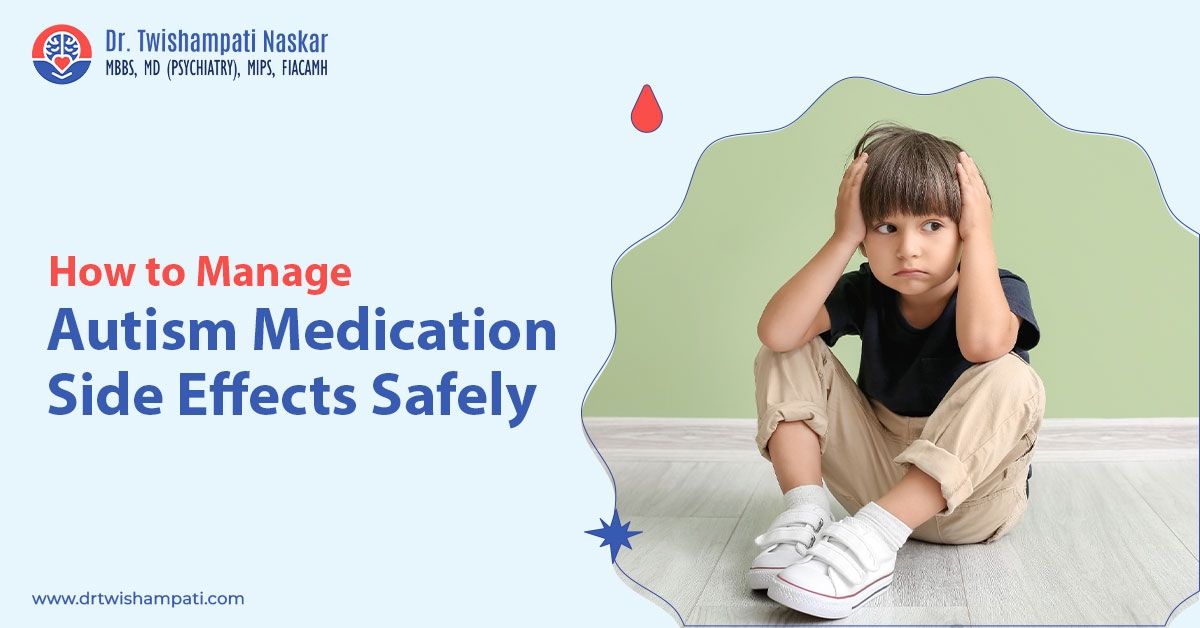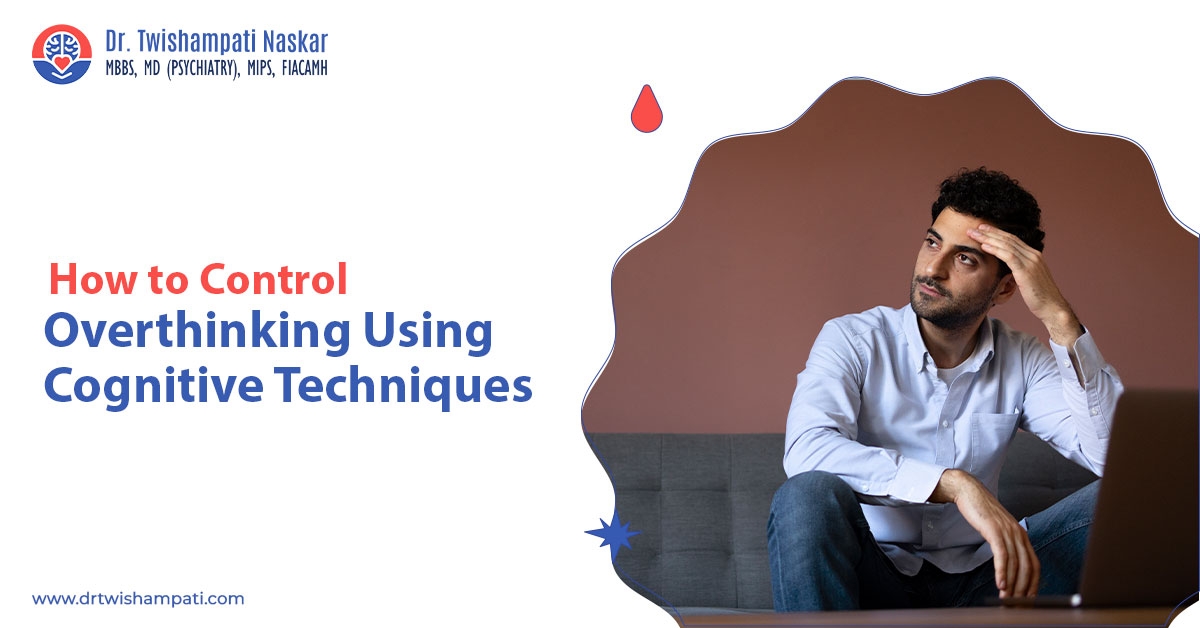Bipolar disorder or manic depression is a distressing mental health condition that has affected millions of people all across the globe. This disorder can be characterized by its distinct signs and symptoms which include depressed mood, being energetic, insomnia, distraction, unusually talkative, restlessness, and suicidal attempts. Being diagnosed with bipolar disorder can be quite overwhelming news but you must always remember that you’re not alone. There is a highly-effective bipolar disorder treatment in Siliguri that will enable you to manage the distressing symptoms effectively.
To get the best treatment for your condition, you must first search and schedule a consultation with a reputed psychiatrist who has years of experience in managing bipolar disorder. While visiting the doctor, you can carry a list of questions you may have about the disorders, their symptoms, treatment options, or required lifestyle modifications. The doctors are always there to answer all your queries so that you can continue with the bipolar disorder treatment without any confusion.
Questions About Bipolar Disorder You Can Ask The Doctor
1. What type of bipolar disorder I am suffering from?
The first thing that you must ask your doctor is what type of bipolar disorder you’re suffering from. During the diagnosis, the doctor will first categorize your bipolar disorder based on the symptoms, pattern of mood episodes, and severity. You must know that there are mainly three types of bipolar disorder which include Bipolar I, Bipolar II, and Cyclothmia.
2. What diagnosis procedure was followed for bipolar disorder?
Once you have booked an appointment with the doctor, the doctor will perform a thorough diagnosis of your bipolar disorder. Herein, you can ask the psychiatrist what diagnosis procedure will be followed to evaluate your condition. In most cases, the doctors check your medical and family history as well as assess the symptoms. Herein, the Diagnostic and Statistical Manual of Mental Disorders (DSM-5) can also be followed.
3. What may have caused the bipolar disorder?
It is essential for you to know what can be the major causes of bipolar disorder. Herein, you can expect to hear from the doctor that there are no known causes of bipolar disorder but it is believed that most cases of bipolar disorder are caused due to a combination of environmental and genetic factors.
4. Can bipolar disorder be hereditary?
There can be a genetic connection for bipolar disorder so you must ask the doctor whether it can be hereditary or not. In some cases, having a family history increases your likelihood of developing bipolar disorder. Herein, you also shouldn’t forget to query whether you have a risk of passing this disorder to the next generation.
5. What symptoms can I expect for my type of bipolar disorder?
While contacting the best psychiatrist in Siliguri, you may not present with all the symptoms of bipolar disorder. This is because in most cases, the patient only experiences mood swings and manic episodes but as the disease progresses, new symptoms start to appear. To prepare for the symptoms, you must ask the doctor about all the possible symptoms that can be expected.
6. Will you administer medications for bipolar disorder?
If you’re ready to start the bipolar disorder treatment then you should ask the doctor whether he will be administering you any medications or not. Usually, the doctors prescribe antidepressants, mood stabilizers, or antipsychotics based on your condition so you must know what type of medicines will be used for your condition.
7. What are the common treatment options for bipolar?
While contacting the doctor, the most important query that you may have is the common treatment options. Herein, the doctor may opt for medications, psychotherapy, or a combination of both for your condition. For effective participation, you need to understand the treatment approach.
8. Will there be any side effects of bipolar medications?
In some cases, the medications recommended by the psychiatrist for bipolar disorder treatment in Siliguri may have certain side effects. Before starting taking the medications, you must make sure that the medicines will have any complications or not. The most common side effects that one can experience are tremors, weight gain, and fatigue.
9. Do I have to schedule routine appointments with you?
You may think that once the treatment is planned and advised, you don’t have to visit the psychiatrist anymore. However, this is not the truth because there can be certain instances when you need medication or treatment modifications. This is why you need to make sure that how frequent you need to schedule follow-up appointments.
10. How much time will the medications take to work?
Bipolar medications don’t work like magic so you cannot expect them to work instantly. To avoid any demotivation regarding the treatment plan, you can ask the doctor that from when you can expect the medications to work. Based on your condition, it may take you around a few weeks or even months to witness the full effects.
11. Can psychotherapy manage bipolar disorder?
Apart from medications, the psychiatrist may also recommend undergoing some psychotherapy sessions for bipolar management. Herein, you may have various questions about this therapy which you must ask the doctor. This is basically a CBT technique that can manage symptoms and help you attain coping skills.
12. What is the role between bipolar disorder and sleep?
During bipolar disorder management, you need to consider various lifestyle habits along with the treatment plan. This is why you need to clearly ask the doctor whether this disorder has any connection with sleep. Remember that following a consistent sleep routine is important for managing bipolar.
13. Do I need to make any lifestyle modifications for bipolar management?
Once the doctor has given you a clear guideline about the treatment plan for bipolar disorder, it is now your job to ask him about the lifestyle modifications that need to be made. To manage bipolar, it is vital for you to maintain proper sleep, manage stress, and indulge in a healthy diet.
14. What can I do to cope with the bipolar mood swings?
One of the most common complications of bipolar disorder is severe mood swings which can deteriorate the overall quality of your life. This is why it becomes essential for you to ask the doctor about what steps you can take to manage those. Journaling, relaxation exercises, and meditation can be some effective measures.
15. How can I identify the early signs of depression or manic episodes?
It is common for patients suffering from bipolar disorder to experience manic and depressive episodes. If you manage to detect the early signs of these episodes then effective management can be possible. Herein, you must look for any changes in your sleep cycle, mood, and energy levels.
16. Is there any natural way to manage stress associated with bipolar?
Stress management is one of the important steps to manage the symptoms of bipolar disorder. Herein, the psychiatrist not only helps you with bipolar disorder treatment in Siliguri but can also recommend stress management techniques which may include deep breathing, yoga, and meditation.
17. What should I do if I experience suicidal thoughts?
One of the most important questions to ask your doctor is what you can do if you suffer from any suicidal thoughts. Herein, the doctor will advise you to seek immediate mental health support or contact the psychiatrist so that any life-threatening situations can be averted successfully.
18. How can I maintain my energy levels during bipolar treatment?
It is common for patients suffering from bipolar disorder to have low energy levels which may also decrease their interest in the treatment plan. However, you can ask the doctor about the steps you can take to maintain energy levels which can include a balanced diet, quality sleep, and regular exercise.
19. What steps can I take to stay motivated during the bipolar treatment?
Getting diagnosed and treated with bipolar disorder can be quite distressing as mental health disorders can considered a social taboo. This is why you must enquire the doctor about the steps you can take to stay motivated. Herein, celebrating small accomplishments, setting SMART goals, and seeking support can be helpful.
20. Can stressful life events trigger bipolar episodes?
Another essential question to ask the doctor during your first appointment is whether bipolar disorder is connected with stressful life events or not. You must know that stressful life events can trigger your mood episodes which can be maintained by getting enough sleep and practicing stress management.
21. Do I have risks of substance abuse due to bipolar disorder?
You can ask the doctor whether you have the risk of substance abuse due to bipolar disorder. Many patients choose illicit substances to cope with bipolar disorder symptoms which can eventually worsen the symptoms and decrease the effectiveness of the treatment plan.
22. What early signs of bipolar relapse should I be aware of?
Despite undergoing bipolar disorder treatment, there are times when you may suffer from a relapse. To curate a relapse recovery plan, you need to question the doctor about the early warning signs. Some common warning signs of relapse can be appetite changes, changes in sleep patterns, difficulty concentrating, and social withdrawal.
23. Is bipolar a long-term mental health condition?
Some mental health conditions are long-term. To have clear expectations about the treatment, ask the doctor whether bipolar disorder is also a long-term illness or not. You must know that this is a lifelong illness that needs continuous treatment.
24. How can I maintain healthy relationships during bipolar treatment?
While undergoing bipolar disorder treatment, it can be difficult for you to maintain relationships with your near ones. To maintain healthy relationships, you can take advice from your doctor that can include setting boundaries, seeking support from your friends and family, and ensuring open communication.
25. Can I join support groups for managing bipolar disorder?
Despite getting proper treatment, it can be beneficial for you to join a support group. Herein, you can ask the doctor whether you can join or not and you can also take some recommendations. Support groups are effective for you as they can offer you the required emotional support.
Asking these questions to the doctor before starting the bipolar disorder treatment in Siliguri will help you acquire some practical tips for bipolar management which can improve your overall mental and emotional well-being. Even if you forget to ask something during the first appointment, you can always consider scheduling follow-up appointments to solve all your queries about the disorder.
Comments (0)







